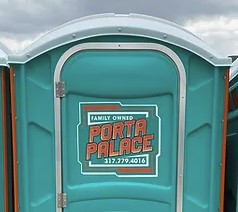Connect With Us:
EXPANDING THE PRE-LIEN NOTICE REQUIREMENT:
THE EFFECT OF FEITLER V. SPRINGFIELD ENTERPRISES, INC. ON THE
RESIDENTIAL BUILDING AND REMODELING INDUSTRY
by Paul J. Carroll
A pre-lien notice must be given in order to subsequently file a valid mechanic’s lien when labor is performed or materials are furnished for the repair, remodel, or original construction of a single or double family dwelling to be occupied by the owner of the property. See, Ind. Code § 32-28-3-1. The purpose of requiring the pre-lien notice is to place property owners on notice of all outstanding indebtedness that a general contractor has, or will, incur in the construction of the owners’ home. See, Rose & Walker, Inc. v. Swaffar, 721 N.E.2d 899, 901 (Ind. Ct. App. 2000); William F. Steck Co. v. Springfield, 151 Ind. App. 671, 281 N.E.2d 530 (1972). Recently, the Indiana Court of Appeals issued a published opinion in Feitler v. Springfield Enterprises, 2012 Ind. App. LEXIS 555 (Ind. Ct. App. Nov. 7, 2012), and expanded a contractor’s obligation to give a proper pre-lien notice beyond the current industry practice or that mandated by prior case law.
The time limits affecting pre-lien notices depend on the type of work being done to a home. The pre-lien notice requirement for alteration and repair work performed on existing structures is governed by Ind. Code § 32-28-3-1(h) which provides:
A person, firm, partnership, limited liability company, or corporation that sells or furnishes on credit any material, labor, or machinery for the alteration or repair of an owner occupied single or double family dwelling or the appurtenances or additions to the dwelling to:
(1) a contractor, subcontractor, mechanic; or
(2) anyone other than the occupying owner or the owner’s legal representative;
must furnish to the occupying owner of the parcel of land where the material, labor, or machinery is delivered a written notice of the delivery or work and of the existence of lien rights not later than thirty (30) days after the date of first delivery or labor performed. The furnishing of the notice is a condition precedent to the right of acquiring a lien upon the lot or parcel of land or the improvement on the lot or parcel of land. (emphasis added).
The pre-lien notice requirement for original construction serves the same purposes as the above statute, but contains important distinctions involving time limitations, the required recipient of the notice, and that the notice be recorded. Specifically, Ind. Code § 32-28-3-1(i) provides:
A person, firm, partnership, limited liability company, or corporation that sells or furnishes on credit material, labor, or machinery for the original construction of a single or double family dwelling for the intended occupancy of the owner upon whose real estate the construction takes place to a contractor, subcontractor, mechanic, or anyone other than the owner or the owner’s legal representatives must:
(1) furnish the owner of the real estate:
(A) as named in the latest entry in the transfer books described in IC 6-1.1-5-4 of the county auditor; or
(B) if IC 6-1.1-5-9 applies, as named in the transfer books of the township assessor;
with a written notice of the delivery or labor and the existence of lien rights not later than sixty (60) days after the date of the first delivery or labor performed; and(2) file a copy of the written notice in the recorder’s office of the county not later than sixty (60) days after the date of the first delivery or labor performed.
The furnishing and filing of the notice is a condition precedent to the right of acquiring a lien upon the real estate or upon the improvement constructed on the real estate. (emphasis added).
Given the text of the statute, its purpose, and case law analyzing an earlier version of the pre-lien notice statute, the residential construction industry has long concluded that where a contractor contracts directly with an owner, no pre-lien notice needs to be furnished or recorded. This practice was justified as the above statutes expressly exempt from the pre-lien notice requirements work done for “the owner or the owner’s legal representatives.” See also, Bayes v. Isenberg, 429 N.E.2d 654 (Ind. Ct. App. 1981), quoting WHO IS THE ‘OWNER’ WITHIN THE MECHANIC’S LIEN STATUTE REQUIRING NOTICE OF CLAIM, 76 A.L.R. 3d 605 (1977)(“[t]he purpose of the prelien notice, such as notice of intention to claim a lien, ordinarily required of persons not dealing directly with the owner of the property, is to enable the owner to protect himself from loss. . . .”); William F. Steck Co. v. Springfield, 151 Ind. App. 671, 281 N.E.2d 530 (1972)(acknowledging the exception to the pre-lien notice requirement where a contractor is contracting directly with the owner or his legal representative). The Indiana Court of Appeals in Feitler, however, disagreed with prior interpretation of the pre-lien notice statutes.
In Feitler, the Feitlers and Cedar Creek Homes (“CCH”) entered into a no lien contract for the construction of a single family residence. CCH engaged several subcontractors, including, among others, JM Woodworking Company (“JM”), to work on the house. JM subcontracted with CCH to install cabinets on the property, which were partially installed by February 2, 2010. On February 2, 2010, and prior to the house’s completion, CCH informed all concerned parties that it was ceasing operations and would not be completing the Feitlers’ house. JM had not yet been paid at the time CCH announced it was closing its doors and JM discussed the matter directly with the Feitlers. The Feitlers made assurances with JM that they would separately contract with JM to complete the cabinet installation. Shortly thereafter the cabinet installation was completed and, upon receiving an invoice for said installation, the Feitlers informed JM that it would not be paid. JM thereafter filed its mechanic’s lien and sought to foreclose the same.
JM argued to the trial court and to the Court of Appeals that once JM contracted separately with the Feitlers, a fact which was uncontradicted, JM was no longer a subcontractor and could, therefore, hold a mechanic’s lien as a direct contractor without furnishing and filing a pre-lien notice. Acknowledging the purpose of the pre-lien notice statute is to place owners on notice, the Feitler Court stated that the pre-lien notice statute “makes no distinction between contractors and subcontractors, and its plain language makes the filing of a pre-lien notice a condition precedent to the right to hold a lien with no provision for the exceptions to this rule.” There is no discussion of what appears to be a clear statutory exception for direct contracts between a contractor and “the owner of the owner’s legal representatives” or prior case law, such as William F. Speck Co. v. Springfield, which expressly notes that exception.
The lesson both new home builders and remodelers should take from Feitler, until the Feitler decision is further clarified, if it is, is that a pre-lien notice must be given regardless of whether a contractor is contracting directly with an owner.
~Paul
Paul Carroll (pcarroll@indylegal.com) is a partner with Mercer Belanger, P.C., in Indianapolis, concentrating his practice in construction litigation, construction contract preparation and review, land use, and advising clients as to business matters. Mercer Belanger, P.C. is a member of Central Indiana NARI. The opinions and analysis expressed in this article are those of the author.




